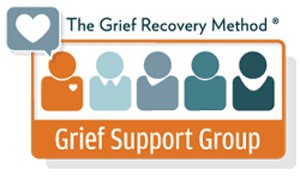Grief Recovery Method
The ways in which we grieve are many. We experience losses:
- of significant relationships, friends, and beloved pets through death, divorce, dementia, or any other reason that causes a painful ending
- of health after illness, injury, or any traumatic event
- of familiarity, or the future you had planned, after a major disruption in the life you once led
And unresolved grief affects everything – our hearts, our physical bodies, the way our brain works, our confidence, our place in the world, our way forward. We think something is wrong with us when we can’t rally, even after much time has passed. But we haven’t been given the right tools for this heavy job. Both the grief event and our response to it break our hearts. We can’t do something about the event. But we can do something about our response.
Why I Am a Grief Recovery Method Specialist
In 2017, I attended my first Grief Recovery Method 8-week Program. I chose to work on the loss of my pre-dementia Mom while I was actively caring for her after an Alzheimer’s diagnosis. I was relieved by the slow, guided, structured method of GRM. After the final class, I felt differently, more settled, more able. And the feeling never left. I have since worked on loved ones who have died and other relationships of living people (but no direct communication with them) that caused me to grieve. But I knew from that first experience, I wanted to be trained to help others.
What is it?
The Grief Recovery Method is a 7 or 8 week proactive program (one-on-one or group) that has been used to help millions of grievers around the world for the last 40 years, on every continent but Antarctica, and in 20 different languages. It is the only evidence-based grief recovery program in the world.
It is a practical, educational method, a tool kit with clear steps, that will teach you how to deal with the unfinished emotional business of the relationship or event, and the undelivered communications that are keeping you emotionally stuck.
What is it not?
It is not talk therapy. You are not required to engage in group conversations.
Time commitment
1-1/2 to 2 hours per week for 7 or 8 weeks, plus 1 to 1-1/2 hours of reading and homework each week. NOTE: It is essential that this is completed before each following week.



